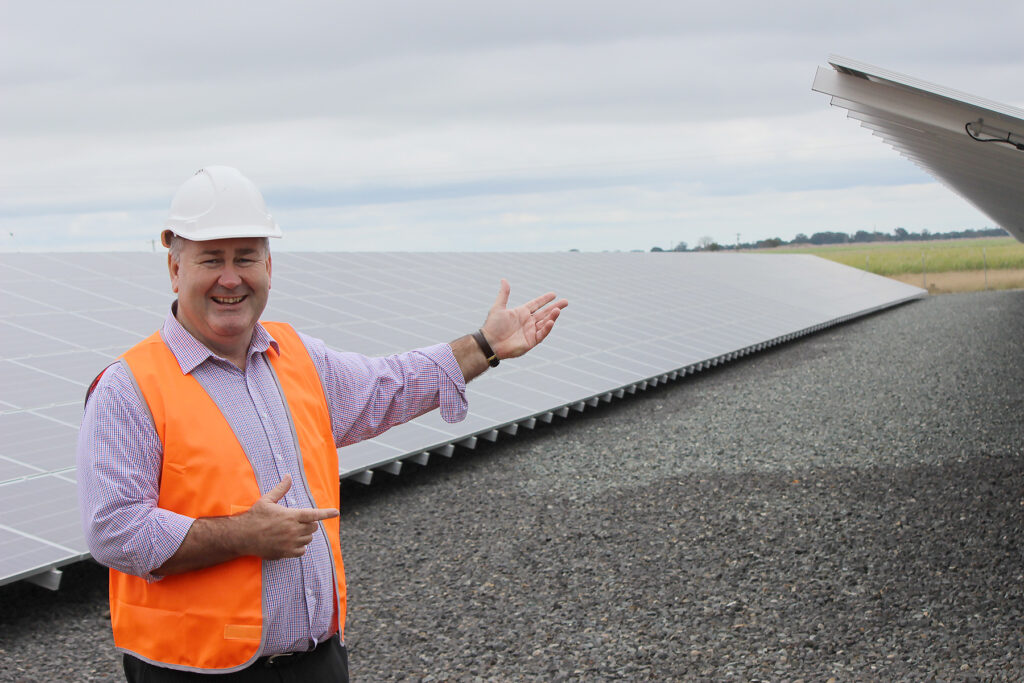
As net-zero targets make national headlines, Bundaberg Regional Council has committed to its own 2030 target to be achieved alongside a circular economy.
Council has committed to introducing a circular economy and achieving a regional net-zero carbon target by 2030.
The announcement, made at the Waste and Resource Recovery Queensland conference last week, comes as Council prepares to release its 2022 Advocacy Priorities.
The circular economy, described as an innovative system for rethinking the way we use products and services, aims to reuse and recycle waste so that products and materials are kept in use for as long as possible.
Mayor Jack Dempsey said everyone had a responsibility to protect the environment and leave the planet in better natural health for future generations and a circular economy would play a critical role.
“This is crucial in the transition to net zero, slowing climate change and reducing pollution,” Mayor Dempsey said.
“The circular economy and renewable energy sectors represent important opportunities to create jobs and benefit the environment.”
One of the impediments to growing the circular economy is knowledge and access to waste, industrial by-products and feedstock.
To overcome this, Mayor Dempsey said Council would introduce new tools to support a resource exchange that would help to create new local economic value.
“Our vision is that by 2030, the regional economy will practise circular economy principles as a matter of course,” he said.
The region’s agricultural sector will have a key role to play with Council and industry already advocating for product stewardship schemes for trickle tape and other agricultural materials with an aim to recover close to 100 per cent of this material.
Roadmap to reach net-zero target by 2030
Mayor Dempsey said significant planning was underway to develop a roadmap to cut carbon emissions across the entire Bundaberg Region.
“The circular economy is one important aspect of that road map which will support industry in reaching this target,” Mayor Dempsey said.
“Other pieces of the puzzle include looking at the ways in which Bundaberg Regional Council can decarbonise its operations, whether that be through solar, hydrogen or other offsets.
“And, of course, the ways in which we as a community can address household consumption to reach a collective net-zero carbon target.”
Biohub opens door for net-zero, circular economy
Working with Utilitas, Council has led the establishment of a biohub in Bundaberg for bio-manufacturing and to produce green hydrogen.
“This opens the door to an entirely new and sustainable industry and contributes to the circular economy,” Mayor Dempsey said.
“Organic waste from local farms can be used to produce clean, green energy.
“Suddenly agricultural by-products become a commodity, not a burden on the community or the environment.
“The future is certainly looking greener with sugar cane tops and sweet potato seconds potentially fuelling hydrogen vehicles and other initiatives.”
But he said Council couldn’t go the distance alone and credited local businesses which were actively seizing the initiative and pressing ahead with innovative projects.
Some of those businesses were highlighted as part of the waste conference site tours, including:
• Greensill Farming Group which has launched Green Solutions to enable the free disposal and re-use of domestic green waste.
• Superior Pak which manufactures and supplies Council garbage collection trucks and is an established national leader in its field.
• The recently expanded Oreco facility at Childers which is producing sustainable garden materials, which is diverting waste from local landfills.
• Bundaberg Rum which has established a successful zero waste to landfill policy.
“These are just some examples of how we can cooperate and innovate to develop the Bundaberg Region’s circular economy,” Mayor Dempsey said.
Bundaberg Regional Council will host its second Bioeconomy Conference from November 2 – 3.





It would be a great idea if green waste could be left at council refuse centres free of charge.
From Isis Central to Greensill’s facility is a long drive to drop of a ute full of greenwaste.